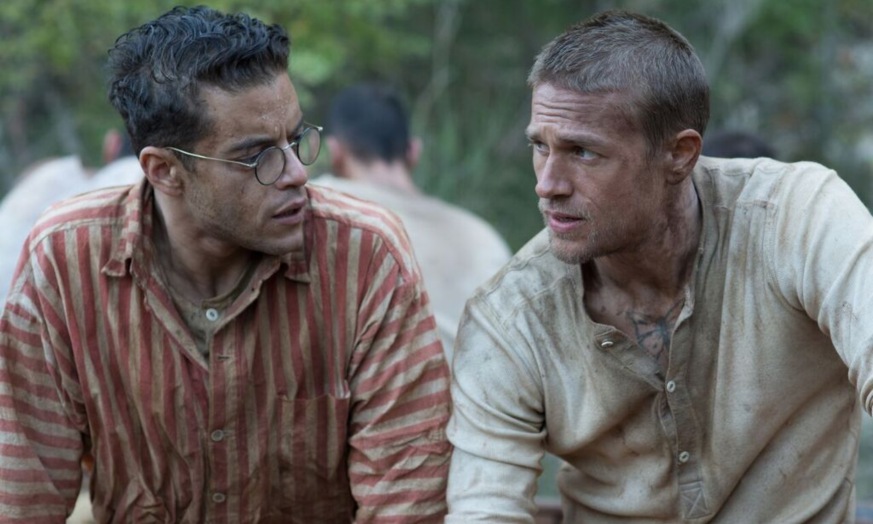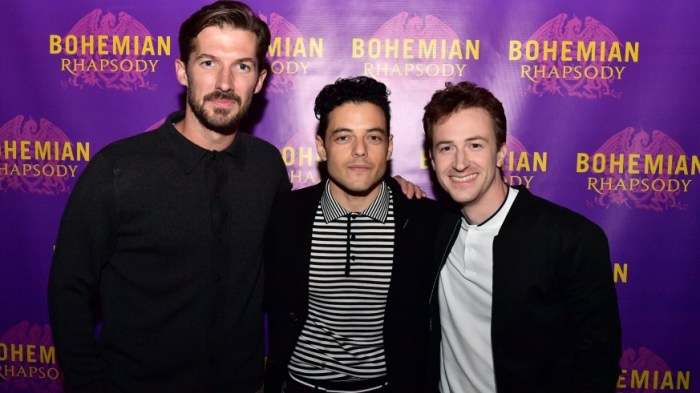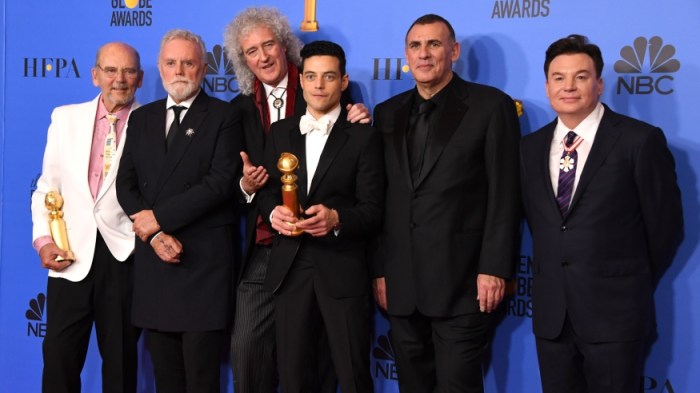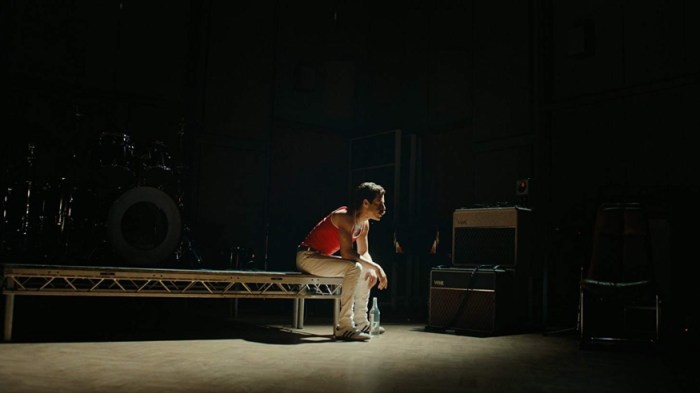Papillon, the 1973 adaptation of Henri Charriere’s best-selling autobiography of his 14-year incarceration and stunning escape from a French penal colony of French Guiana, is rightfully regarded as a movie masterpiece.
It was scored, written and directed by the Oscar-winning talents of Jerry Goldsmith, Dalton Trumbo and Franklin J. Schaffner, respectively, and starred the titanic acting talents of Steve McQueen and Dustin Hoffman.
So director Michael Noer and stars Charlie Hunnam and Rami Malek knew they would have to dig deep to make a distinctive and original version of the film.
I recently had the chance to speak to Noer and Malek, who plays the Louis Dega to Hunnam’s Charriere, and they broke-down why they decided to remake “Papillon,” with Malek admitting that he was originally dubious about taking the role.
“The first thing, obviously, is the memory of the film, and my memory of reading the book is one of sentiment. There is obvious hesitation to making a film with that.”
“Because, could anyone do it justice? The original film lives in our memory as an iconic piece of cinema history. So it is a very difficult thing to tackle, and it seems unapproachable.”
“But I was convinced by that we wouldn’t be in the shadows of that film, but standing on the shoulders of the book, perhaps.”
Noer never thought of his film as a remake of “Papillon,” though.
“I think my intention, and what kept me going throughout the whole production, was for me I didn’t want to look at it at all as though it was a remake,”
“It was very important for me to almost approach it as though I was a theatre director setting up ‘Hamlet,’ but never reading the words of Shakespeare.”
“Really trying to keep the DNA, but really try not to keep away from the very long shadows that this former film cast. It is almost something that could kill any atmosphere. If you don’t always think you can breathe new life into it.”
“On the other hand, setting up ‘Hamlet’ on the stage wouldn’t make any sense if it didn’t have the DNA and didn’t have the turmoils of the characters. Of course it is important to keep this DNA and to be truthful about it.”
“There is also a certain amount of political motivation in making a movie which to this date is just as relevant, maybe even more, than it ever was.”
“If you look at the way that isolation is being used in prisons around the world. And also because we now live in a world that seems so politically hopeless.”
“I hope that I have created an entertaining, action-filled movie that is told from a world of darkness, but within it there is a lot of hope.”
Malek admitted that it was Noer’s vision that ultimately convinced him to join the project.
“It is Michael, in the sense of his viewpoint. It is a director’s medium. So looking at it from his perspective shed an entirely new light on it.”
“He is very, very specific on his storytelling. He comes at things from a very philosophical place, too. I knew that I would be getting a director with a very distinct viewpoint. And I could come to him with any ideas and we would collaborate to come up with something very unique.”
“We sat down over a couple of tea. And if you get to meet him you will probably be inspired and want to do a movie yourself with him. You’ll be enchanted.”
“Then when you see his work, it is not often that you meet someone that is as intellectually smart as they are creatively smart, and that is him.”
Noer gave me insight it just how “intellectually smart” he is, by talking at length about some of the themes he wanted to cover with his version of “Papillon.”
“This is just something that is a backdrop to the film, but I thought it was interesting that the inmates, this is a very big thing with the prisons, they were prison colonies and people were making money off prisoners.”
“Which means that it was a privatisation and industrialisation of imprisonment. Which I think is a very problematic thing, because you are actually privatising something that is so dangerous. Because what happens to justice when you privatise it?”
“It is really weird with history, because we keep on forgetting it. We should really look into all these mistakes that people have done before and learn from them.”
“But the older I get, the more I am aware of doing work like this, where you remind people of some of the injustices that we as human beings have done through time.”
“Because we keep forgetting them, even though we are living in a time of information, it is as though we are only remembering it 10 minutes at a time.”
“That was something I felt was important. I hope some people will remember this, and discuss it over a cup of coffee after seeing the film.”
Thinking of “Papillon” on this scale also motivated Noer and his cast and crew whenever production threatened to lose momentum.
“This helps to keep you motivated when the going gets tough,” Noer insisted. “You feel as though you are on a mission, which is bigger than your own ego.”
“You are trying to convey something that is bigger than the now. You are portraying something that took place in the past, that has something to play to the realms of the future. I think I try to do that in all of my movies.”
Things certainly got tough while making “Papillon,” too, because this version of Charriere’s story is much dirtier and grittier than its predecessor.
“It was a very, very dirty film. In the sense that we were trudging through mud on our many, many days,” recalled Malek.
“Countless night shoots in the rain. We also shot 6 days out of 7. It was one of those films that a make-up appreciates because there is less work that they need to do on you day-by-day that makes you look like you have been suffering.”
Such conditions were necessary. Because Noer’s main intention “conceptually” with “Papillon” was to create such a vivid experience that the audience could actually smell where the characters were and what they were going through.
“Conceptually, I always reminded the make-up department, production designer and photographer that we were really trying to make a movie that smells.”
“We thought it would be great if people could really smell the movie. When you are in Paris you can smell the fake perfume, when you are in the prison cells you can smell the sweat, you should be able to hear the insects, to feel them.”
“The smell part of the filmmaking was a key part in conceptualising the world. Us achieving that is a credit to the crew, which is great for a director like me, who is still under 40, and was given a chance to play with the full vocabulary of Hollywood filmmaking. That was a great experience on a professional level.”
“Papillon” is released across the country on August 24.


















